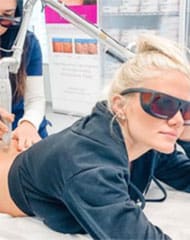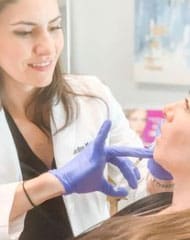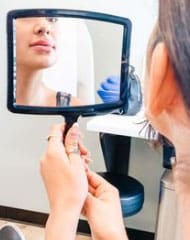 Eyelid surgery, also called blepharoplasty, is a common procedure that can have both cosmetic and medical benefits. Because of this, many people often question whether their health insurance might cover eyelid surgery. Typically, health insurance companies weigh a few factors to determine if your eyelid surgery should be covered.
Eyelid surgery, also called blepharoplasty, is a common procedure that can have both cosmetic and medical benefits. Because of this, many people often question whether their health insurance might cover eyelid surgery. Typically, health insurance companies weigh a few factors to determine if your eyelid surgery should be covered.
Is Your Vision Significantly Affected?
Sometimes, severely sagging upper eyelids can affect your vision so much that they begin to interfere with your ability to perform normal activities. If you notice vision obstruction, your eyelid surgery may be deemed medically necessary and could therefore be covered by insurance.
You may, however, have to provide a physician’s note and high-resolution photos of your eyes in order to demonstrate the necessity of your blepharoplasty to improve your vision and quality of life.
Do You Have Another Related Condition?
If eyelid sagging is a result of another medical condition, such as thyroid eye disease or chronic eye dermatitis, your insurance company may foot the bill for your eyelid surgery.
A condition known as congenital ptosis is genetic and may therefore allow for corrective eyelid surgery to be covered by insurance.
Check with Your Cosmetic Surgeon
The best way to find out for sure if your procedure could be covered by your health insurance is to discuss your specific situation with your cosmetic surgeon, and ultimately, your insurance company.
Even if you’re opting for eyelid surgery for cosmetic reasons and it is not covered by insurance, many cosmetic surgeons will offer financing options to help make your procedure as affordable as possible.











